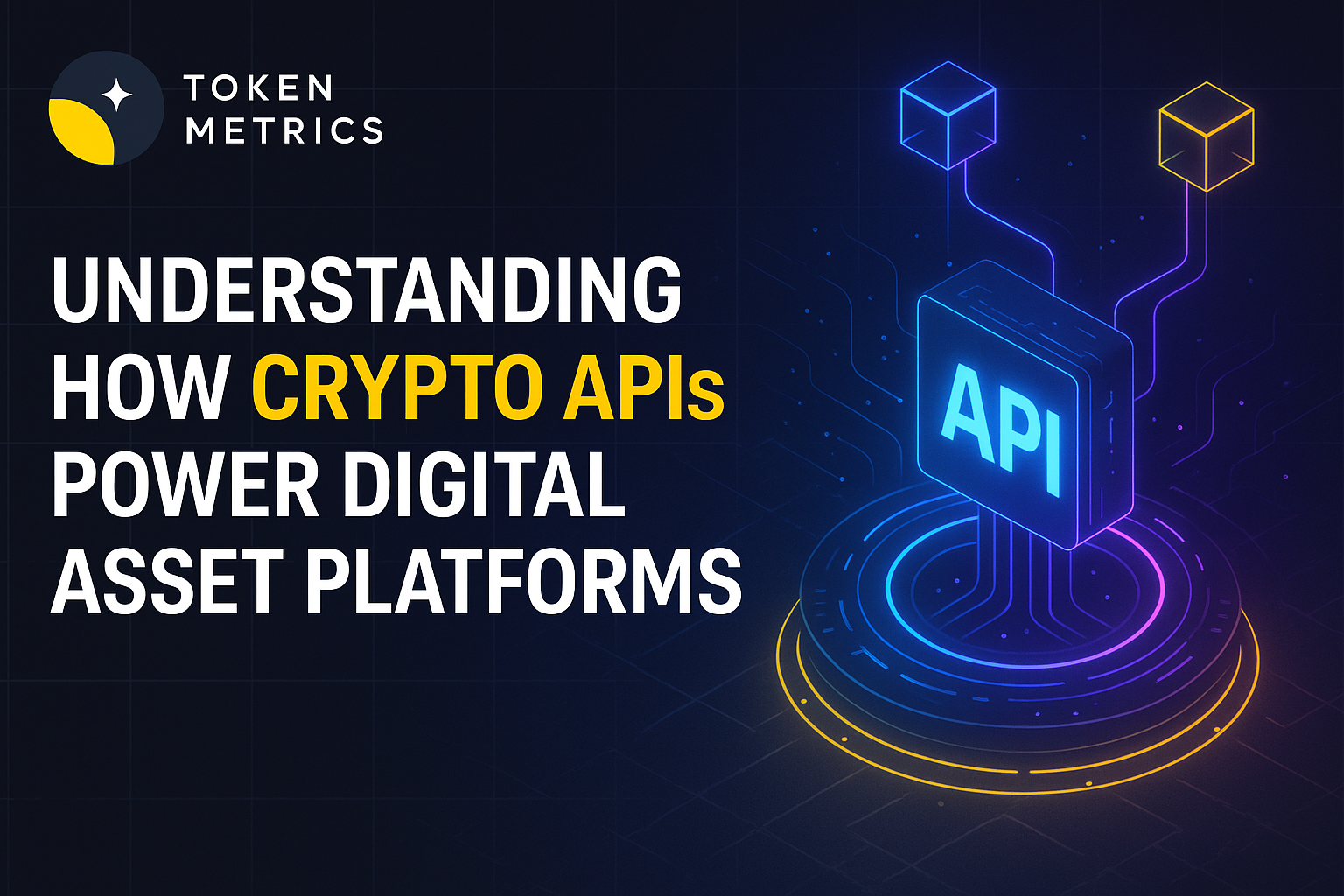Understanding How Crypto APIs Power Digital Asset Platforms

In today's digital asset ecosystem, Application Programming Interfaces, or APIs, are the unsung heroes enabling everything from cryptocurrency wallets to trading bots. Whether you're a developer building for Web3 or a curious user interested in how your exchange functions, understanding how crypto APIs work is essential
What Is a Crypto API?
A crypto API is a set of programming instructions and standards that allow software applications to communicate with cryptocurrency services. These services may include wallet functions, price feeds, trading engines, exchange platforms, and blockchain networks. By using a crypto API, developers can automate access to real-time market data or execute trades on behalf of users without manually interacting with each platform.
For instance, the Token Metrics API provides structured access to cryptocurrency ratings, analytics, and other data to help teams build intelligent applications.
Types of Crypto APIs
There are several categories of APIs in the cryptocurrency landscape, each with different capabilities and use cases:
How Crypto APIs Work
At their core, crypto APIs operate over internet protocols—typically HTTPS—and return data in JSON or XML formats. When an application makes a request to an API endpoint (a specific URL), the server processes the request, fetches the corresponding data or action, and sends a response back.
For example, a crypto wallet app might call an API endpoint like /v1/account/balance to check a user’s holdings. To ensure security and authorization, many APIs require API keys or OAuth tokens for access. Rate limits are also enforced to prevent server overload.
Behind the scenes, these APIs interface with various backend systems—blockchains, trading engines, or databases—to fulfill each request in real time or near real time.
Common Use Cases for Crypto APIs
Crypto APIs are used across a broad spectrum of applications:
Benefits of Using Crypto APIs
APIs dramatically reduce time-to-market for developers while enhancing user experience and application efficiency.
Key Considerations for API Integration
When integrating a crypto API, consider the following factors:
Platforms like the Token Metrics API provide both comprehensive documentation and reliability for developers building AI-powered solutions in crypto.
AI-Powered Analytics and APIs
Some of the most powerful crypto APIs now incorporate artificial intelligence and machine learning features. For example, the Token Metrics API facilitates access to predictive models, coin grades, and AI-based price forecasts.
By embedding these tools into custom apps, users can programmatically tap into advanced analytics, helping refine research workflows and support technical or fundamental analysis. Although these outputs can guide decisions, they should be viewed in a broader context instead of relying exclusively on model predictions.
Conclusion
Crypto APIs are critical infrastructure for the entire digital asset industry. From data retrieval and trading automation to blockchain integration and AI-driven analytics, these tools offer immense utility for developers, analysts, and businesses alike. Platforms such as Token Metrics provide not only in-depth crypto research but also API access to empower intelligent applications built on real-time market insights. By understanding how crypto APIs work, users and developers can better navigate the rapidly evolving Web3 landscape.
Disclaimer
This article is for informational and educational purposes only. It does not constitute financial, investment, or technical advice. Always conduct your own research and consult professional advisors before making any decisions.
Create Your Free Token Metrics Account

.png)




%201.svg)
%201.svg)


%201.svg)








.svg)




.png)